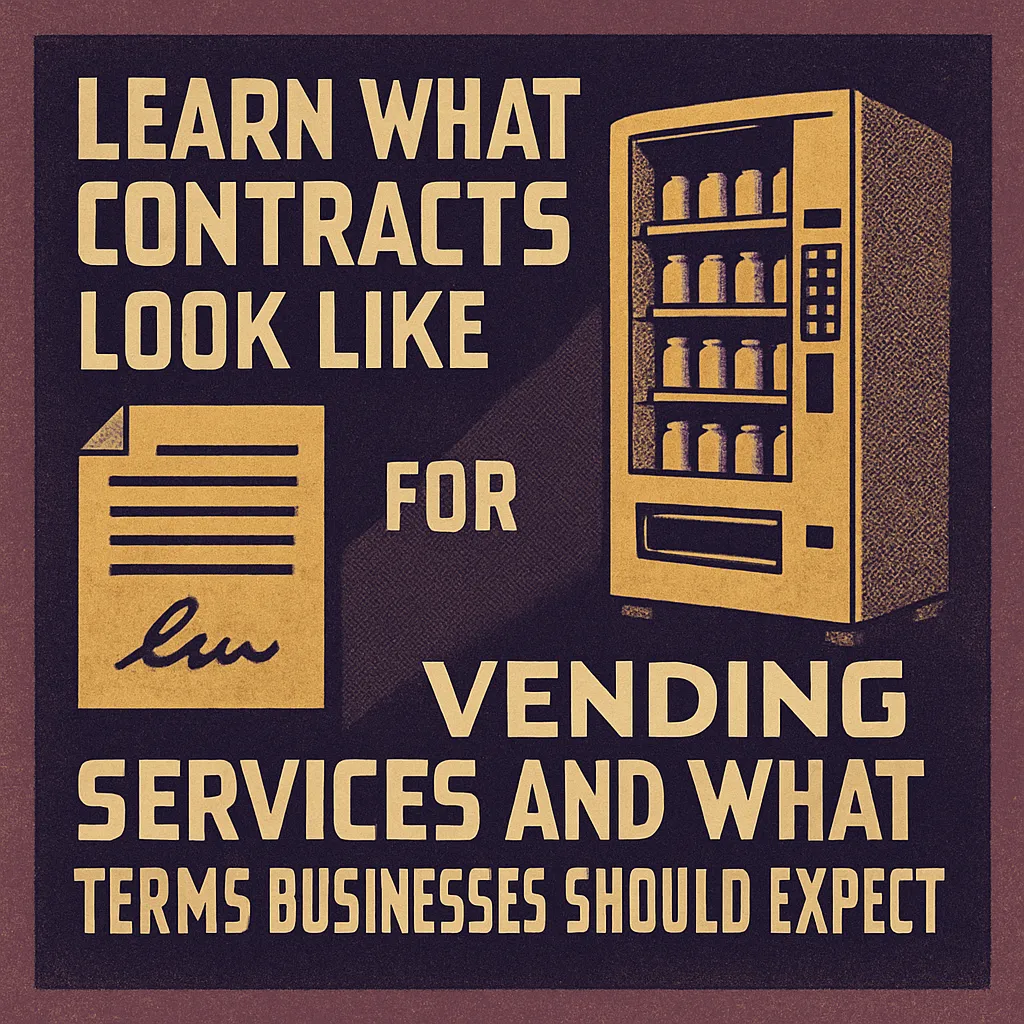Are There Contracts for Vending Services?
Learn what contracts look like for vending services and what terms businesses should expect.
Back to Vending FAQs ResourcesLearn what contracts look like for vending services and what terms businesses should expect.
Back to Vending FAQs ResourcesEngaging with a vending service provider almost always involves a contract. These agreements are crucial for outlining the scope of service, responsibilities of both parties, and the expectations for machine performance and product availability.
![]() Contracts clarify service expectations and provider obligations
Contracts clarify service expectations and provider obligations
![]() Key terms define product selection, maintenance, and payment
Key terms define product selection, maintenance, and payment
![]() Negotiation allows for customization to your business needs
Negotiation allows for customization to your business needs

When considering vending services for your business, understanding the contractual agreements involved is paramount. Vending contracts are legally binding documents that establish the relationship between your business and the vending service provider. They detail everything from the types of machines and products offered to service schedules, maintenance responsibilities, and financial arrangements, including whether or not there are commissions from vending machines.
A typical vending service contract will cover several critical areas. These often include the duration of the agreement, clauses regarding exclusivity (meaning only that provider can place machines on your premises), product selection, pricing, and how often machines will be restocked and cleaned. It’s also important to look for clauses related to machine malfunction, repair times, and customer service support. Understanding these components is the first step in ensuring the agreement aligns with your expectations and operational needs. For a deeper dive into what to expect, review how vending contracts work.
Many businesses assume vending contracts are rigid, but most terms are negotiable. You can discuss product variety, service frequency, and even commission rates to better suit your needs. Pay close attention to early termination clauses and automatic renewal provisions. Knowing questions to ask before signing a vending contract can help you secure more favorable terms and prevent unforeseen issues down the line. A well-negotiated contract protects your interests and ensures a smooth, beneficial partnership.
Yes, most professional vending services operate under a written contract that outlines the terms of service.
A standard contract usually covers machine placement, product selection, service schedule, commission rates (if any), and maintenance responsibilities.
Contract lengths vary but commonly range from one to five years, often with options for renewal.
Absolutely. Businesses should review and negotiate terms like product variety, service frequency, and exclusivity clauses to meet their specific needs.
An exclusivity clause typically states that the vending service provider is the sole company allowed to place vending machines at the location for the contract duration.
Yes, even for free placements, a contract is essential to define the responsibilities of both parties, ensuring clear expectations for service and maintenance.
Early termination clauses outline the conditions and potential penalties for ending a contract before its agreed-upon term, so it's crucial to understand them beforehand.
Yes, contracts clearly define who is responsible for machine maintenance, repairs, and restocking, which is typically the vending service provider.
While informal arrangements might exist, a written contract is highly recommended to protect both parties and ensure consistent service levels.
For complex or long-term agreements, seeking legal counsel to review the contract terms is always a good idea to protect your business interests.